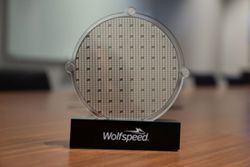
FILE PHOTO: Turkish President Tayyip Erdogan attends the G20 summit in Rio de Janeiro, Brazil, November 19, 2024. REUTERS/Pilar Olivares/File Photo
ANKARA (Reuters) - Turkish President Tayyip Erdogan said on Wednesday that Kurdish militants in Syria will either lay down their weapons or "be buried", amid hostilities between Turkey-backed Syrian fighters and the militants since the fall of Bashar al-Assad this month.
Following Assad's departure, Ankara has repeatedly insisted that the Kurdish YPG militia must disband, asserting that the group has no place in Syria's future. The change in Syria's leadership has left the country's main Kurdish factions on the back foot.
"The separatist murderers will either bid farewell to their weapons, or they will be buried in Syrian lands along with their weapons," Erdogan told lawmakers from his ruling AK Party in parliament.
"We will eradicate the terrorist organisation that is trying to weave a wall of blood between us and our Kurdish siblings," he added.
Turkey views the Kurdish YPG militia - the main component of the U.S.-allied Syrian Democratic Forces (SDF) - as an extension of the outlawed Kurdistan Workers Party (PKK) militia, which has waged an insurgency against the Turkish state since 1984.
The PKK is designated a terrorist organisation by Turkey, the United States and the European Union. Ankara has repeatedly called on its NATO ally Washington and others to stop supporting the YPG.
Earlier, Turkey's defence ministry said the armed forces had killed 21 YPG-PKK militants in northern Syria and Iraq.
In a Reuters interview last week, SDF commander Mazloum Abdi acknowledged the presence of PKK fighters in Syria for the first time, saying they had helped battle Islamic State and would return home if a total ceasefire was agreed with Turkey, a core demand from Ankara.
He denied any organisational ties with the PKK.
Erdogan also said Turkey would soon open its consulate in Aleppo, and added Ankara expected an increase in traffic at its borders in the summer of next year, as some of the millions of Syrian migrants it hosts begin returning.
(Reporting by Huseyin Hayatsever; Writing by Tuvan Gumrukcu; Editing by Ece Toksabay and Emelia Sithole-Matarise)



































